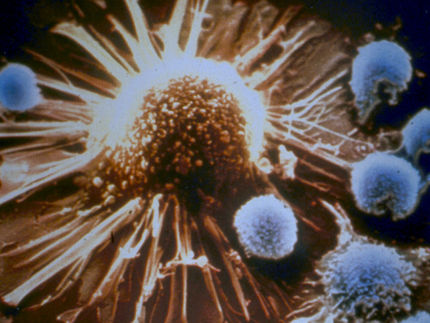EMA’s CHMP Issues Positive Opinion for Avelumab for the Treatment of Metastatic Merkel Cell Carcinoma
Decision by the EC is expected in the third quarter of 2017
Merck and Pfizer Inc. announced that the Committee for Medicinal Products for Human Use (CHMP) of the European Medicines Agency (EMA) has recommended the approval of avelumab (BAVENCIO®) as a monotherapy for the treatment of adult patients with metastatic merkel cell carcinoma (mMCC), a rare and aggressive skin cancer. The European Commission (EC) will now review the CHMP’s recommendation, with a decision expected in the third quarter of 2017.
“We welcome the CHMP’s recommendation, as there are currently no approved treatments in Europe for this type of skin cancer, which can be devastating for patients and their families,” said Luciano Rossetti, M.D., Executive Vice President, Global Head of Research & Development at the biopharma business of Merck. “This is an important step towards making avelumab available to patients and we look forward to the European Commission’s decision later this year.”
“Metastatic Merkel cell carcinoma is a devastating disease and patients in Europe currently have very few treatment options,” said Chris Boshoff, M.D., PhD, Senior Vice President and Head of Immuno-Oncology, Early Development, Translational Oncology, Pfizer Global Product Development. “This milestone further demonstrates our commitment to tackle hard-to-treat cancers as we continue to explore the potential of avelumab in other tumors.”
The CHMP positive opinion is based on data from JAVELIN Merkel 200, an international, multicenter, single-arm, open-label, Phase II study split into two parts:
- Part A included 88 patients with mMCC whose disease had progressed after at least one chemotherapy treatment, with 59% of patients reported to have had one prior anti-cancer therapy for mMCC and 41% had two or more prior therapies. Data submitted included a minimum of 18 months of follow-up.
- Part B, at the time of the data cut-off, included 39 patients with histologically confirmed mMCC who were treatment-naïve to systemic therapy in the metastatic setting, 29 of whom had at least 13 weeks of follow-up. Enrolment in Part B of the study is ongoing and is planned to include 112 treatment-naïve patients.
The human anti-PD-L1 antibody, avelumab, previously received Orphan Drug Designation (ODD) from the EC for MCC. To qualify for ODD in the EU, a medicine must be intended for the treatment, prevention or diagnosis of a disease that is life-threatening or chronically debilitating, and has a prevalence in the EU of not more than 5 in 10,000 people.
The US Food and Drug Administration (FDA) granted accelerated approval for avelumab in March 2017 for the treatment of mMCC in adults and pediatric patients aged 12 years and older; and in May 2017 for the treatment of patients with locally advanced or metastatic urothelial carcinoma who have disease progression during or following platinum-containing chemotherapy therapy, or who have disease progression within 12 months of neoadjuvant or adjuvant treatment with platinum-containing chemotherapy. These indications were granted under accelerated approval based on tumor response rate and duration of response data/criteria. Continued approval for these indications may be contingent upon verification and description of clinical benefit in confirmatory trials.
The clinical development program for avelumab, known as JAVELIN, involves at least 30 clinical programs and more than 6,000 patients evaluated across more than 15 different tumor types. In addition to mMCC, these cancers include breast, gastric/gastro-esophageal junction, head and neck, Hodgkin’s lymphoma, melanoma, mesothelioma, non-small cell lung, ovarian, renal cell carcinoma and urothelial carcinoma.
Other news from the department research and development

Get the life science industry in your inbox
By submitting this form you agree that LUMITOS AG will send you the newsletter(s) selected above by email. Your data will not be passed on to third parties. Your data will be stored and processed in accordance with our data protection regulations. LUMITOS may contact you by email for the purpose of advertising or market and opinion surveys. You can revoke your consent at any time without giving reasons to LUMITOS AG, Ernst-Augustin-Str. 2, 12489 Berlin, Germany or by e-mail at revoke@lumitos.com with effect for the future. In addition, each email contains a link to unsubscribe from the corresponding newsletter.





















































